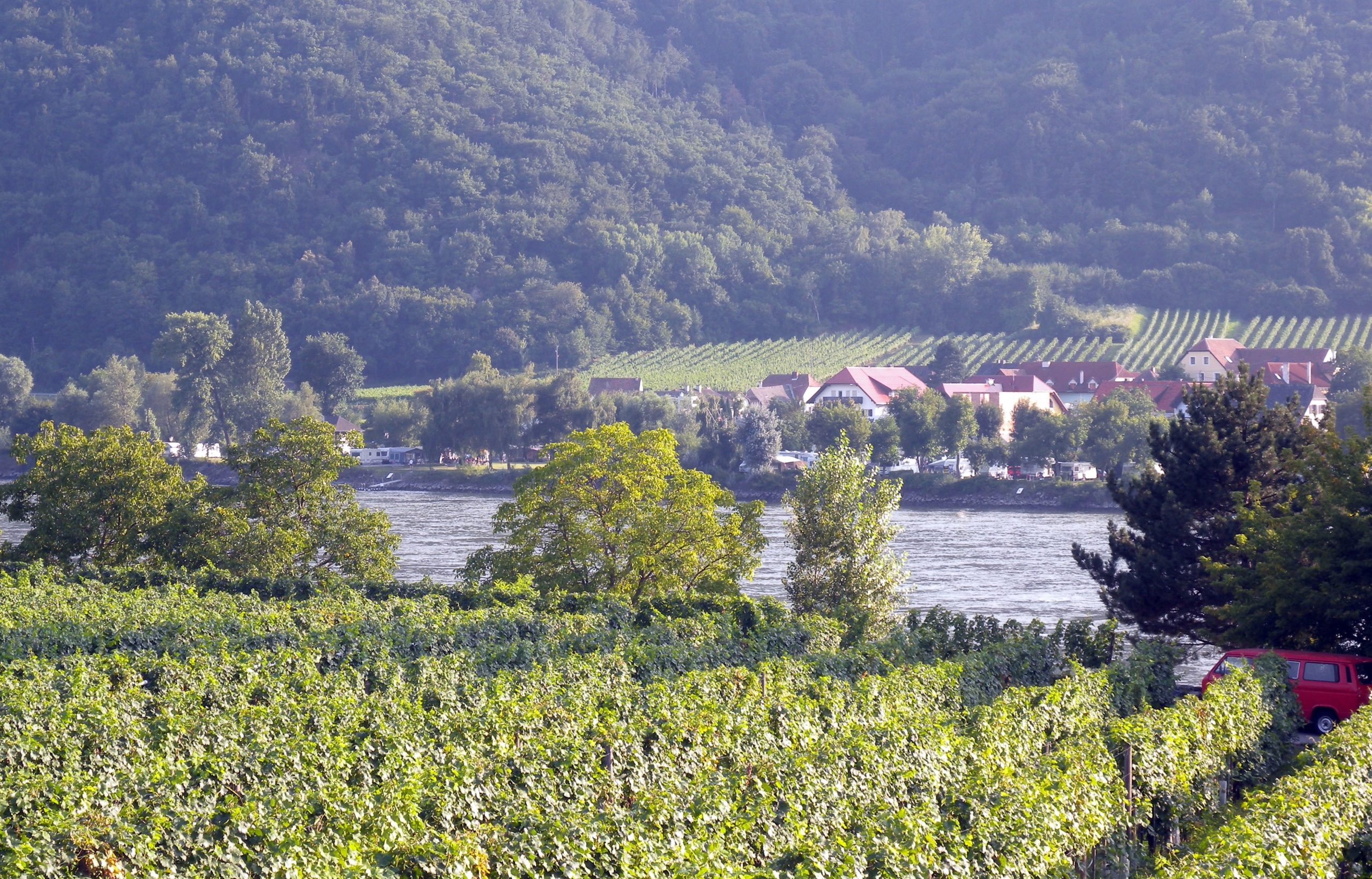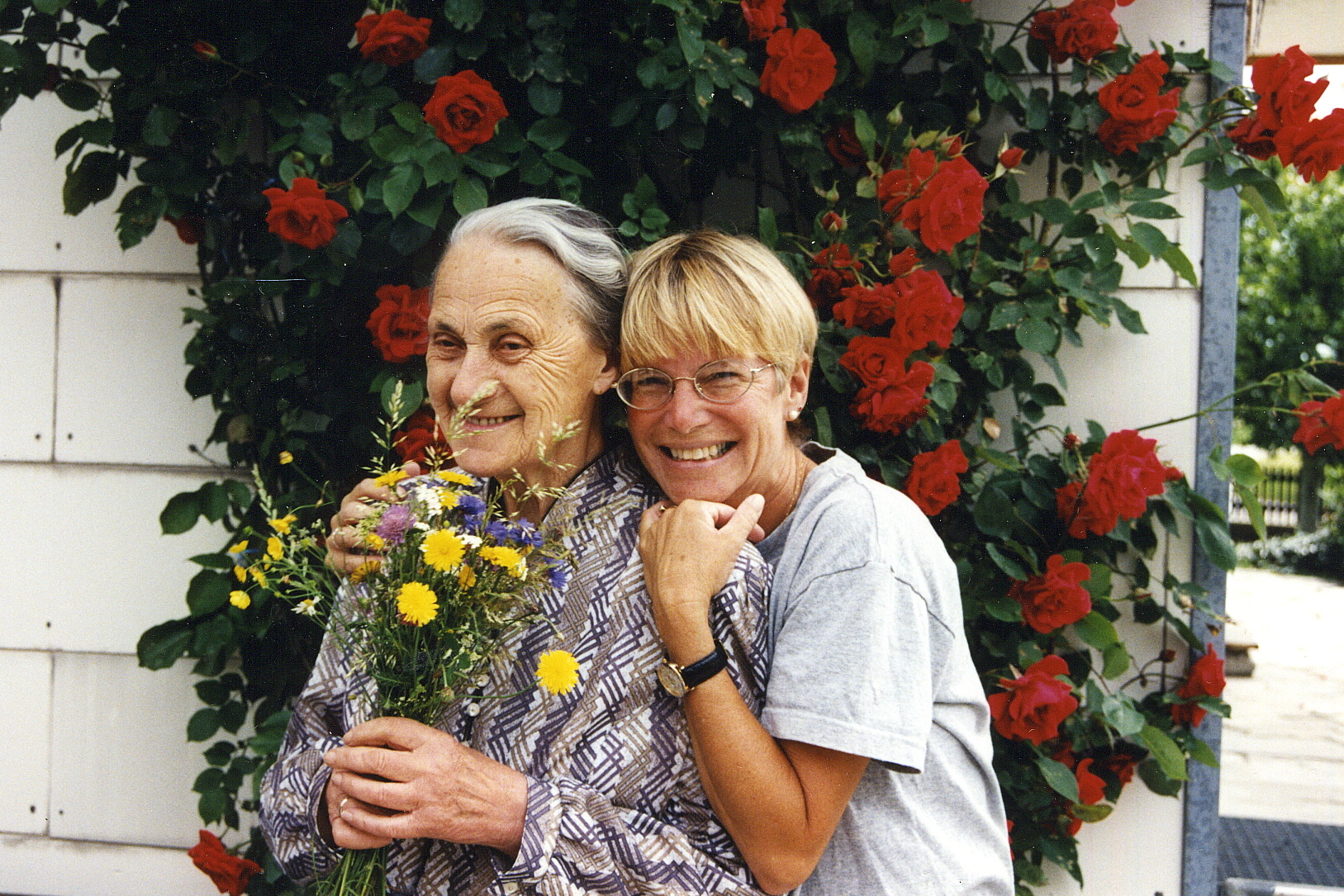The Crush of Wine and War, Backstory
The Crush of Wine and War began with my unexpected and deeply appreciated relationship with Elie Wiesel, perhaps the most celebrated Holocaust author of all time and winner of the Nobel Peace Prize. Our friendship sent me careening into years of holocaust study.
So in 1984, when I met Franziska Jägerstätter, the widow of Franz Jägerstätter, an Austrian peasant farmer who was beheaded in 1943 for refusing to be inducted into the army of the Third Reich, I was primed to be intrigued. The Austrian resistance had been meager at best.
But this was an unusual Austrian couple They were from different towns, unusual in rural Austria, where a young woman typically married the farmer next door. He took her on a honeymoon to Rome, which was totally unheard of. The most fascinating facet of their relationship was that they were deeply, passionately, in love.
In 1940, Franz was required to report to boot camp in Enns. During the next three years, he was in and out of training venues, and the couple exchanged letters that while filled with love and longing, suggested the slow build-up of tension between two people of different minds. Franz was increasingly sure that in good conscience, he could not fight for Hitler. Franziska pushed back with complaints about the hard physical labor required of her on their farm, the tribulations of three small children, and suggestions of other forms of military service, such as serving on the local police or volunteering to be a medic.


“So in 1984, when I met Franziska Jägerstätter, the widow of Franz Jägerstätter, an Austrian peasant farmer who was beheaded in 1943 for refusing to be inducted into the army of the Third Reich, I was primed to be intrigued."
He was called to active duty in February, 1943. He again reported to Enns, but declared his refusal to enlist and was sent to Brandenburg Prison in Berlin. On August 8, Franziska visited him, continuing to beg him to find a way out. But it was too late, and he was executed the next day.

The woman I met was warm, friendly, and engaging. But several of her grandchildren remember her as being distant and often angry. We had become good friends by the time the Catholic Church elevated Franz to martyr status and Franziska to faithful wife, supportive at all costs. I wondered about that. However a courageous, faith-filled human being Franz had been, she lost the love of her life in a situation she might have felt, deep-down, could have been prevented with some compromise on his part. Why would someone so deeply in love acquiesce to her husband’s deliberate destruction of their family?
“That conflict inspired me, and in 1990, I asked her if I could write her story. She said, “only after I’m dead.” A decade later, I asked how she would feel if I wrote a novel, loosely inspired by her life."
That conflict inspired me, and in 1990, I asked her if I could write her story. She said, “only after I’m dead.” A decade later, I asked how she would feel if I wrote a novel, loosely inspired by her life. We sat around her kitchen table, me with a phone book, her with a pencil, deciding on her “new name.” She chose Hannah.
In the end, I “borrowed” only a few facts from her life from their lives:
- My couple, Hannah and Sebastien Brandl, also come from two different towns.
- The Brandls meet in a bar; Franziska met Franz in a Gasthaus where she was a waitress and spent time in the garden setting up bowling pins that he and his friends knocked down.
- Sexual passion is also part of Hannah and Sebastien’s love story.
- Sebastien, like Franz, votes NO in the referendum that demanded all Austrians confirm their allegiance to Hitler and the Nazi Regime.
When Franziska died in 2013, I decided to keep my promise to her. When Elie died in 2016, I marveled at my fortune, to have known and loved these two survivors of unspeakable evil. I can only hope to honor Elie’s memory in those parts of my novel that describe the persecution of his people. As for Franziska and Franz Jägerstätter, this is not their story, but they live in my words.